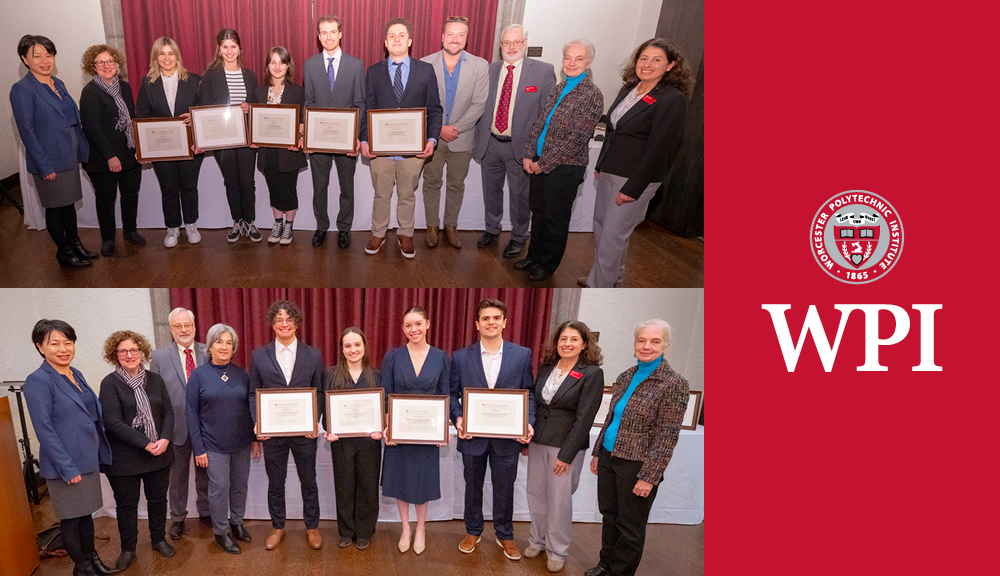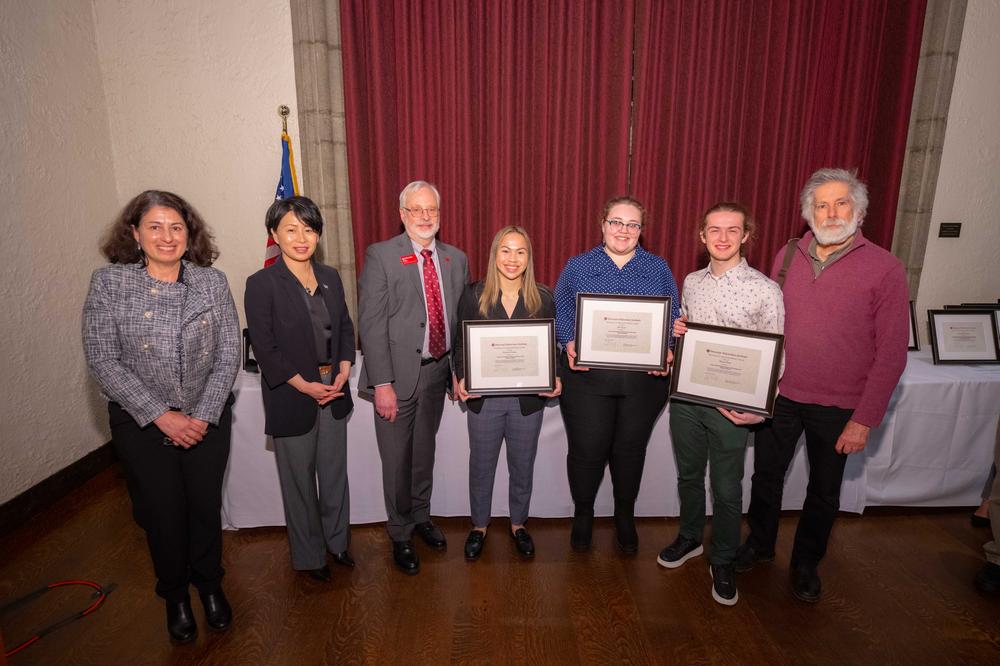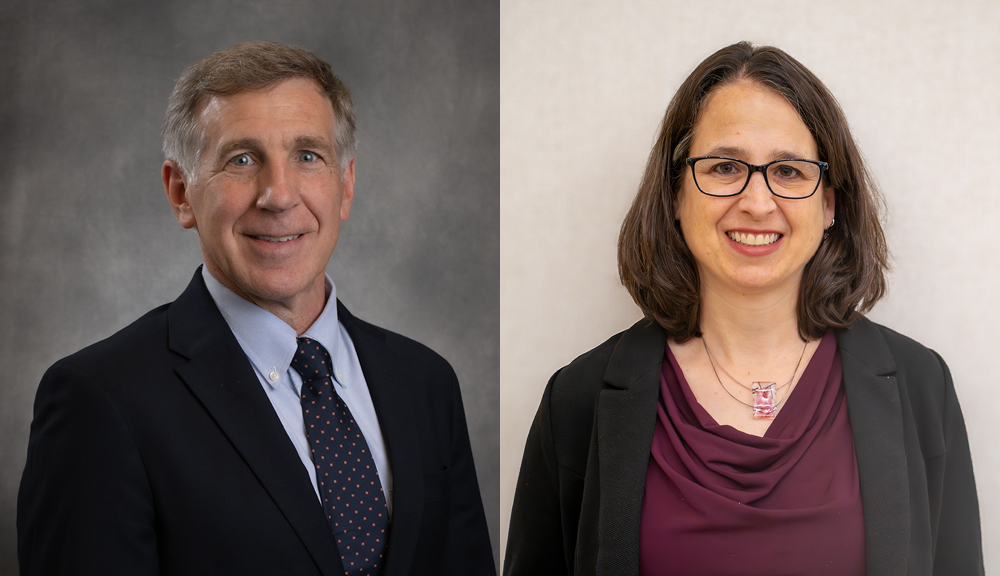WORCESTER, Mass. – Nov. 10, 2008 – Last year, a student research team from Worcester Polytechnic Institute (WPI) worked to improve community relations between a coal-burning power plant company and villagers in rural Thailand. This year, that team was selected from among 40 other nominees as a top winner in the Forum on Education Abroad’s prestigious Undergraduate Research Award competition. The WPI team was chosen from the largest and most competitive round of awards in the Forum’s five-year history for its project “Two Sides to Every Story: A Case of Environmental Communication in Mae Moh, Thailand,” and is the first interdisciplinary team in the competition’s history to win the award.
The Forum’s Undergraduate Research Award is a national competition that recognizes only the most outstanding work done by students as part of their education abroad program. The award will be given at a February 2009 ceremony in Portland, Ore., and the entire WPI team will attend the ceremony. Members include senior civil and environmental engineering majors Ryan Eley of Quaker Hill, Conn.; Timothy Grant of New Providence, N.J.; and Alexandra Kulinkina of Newburyport, Mass.; and Alexandra Sanseverino, a senior biochemistry major from New Haven, Conn. The team’s faculty advisors were WPI professors Thomas B. Robertsonof the Humanities and Arts Department, Richard F. Vaz, dean of WPI’s Interdisciplinary and Global Studies Division; and Chrysanthe Demetry of the Mechanical Engineering Department.
The Thailand-based project was chosen for the award by a panel of faculty from Forum-member institutions that judged it to be among the best examples of what students can achieve when they study abroad, according to Brian Whalen, PhD, president and CEO of The Forum on Education Abroad, based at Dickinson College in Carlisle, Pa.
“This project is not only an excellent example of interdisciplinary, team-oriented academic work, but it also provides a potentially useful outcome for the local communities in Thailand,” Whalen said. “The students showed enormous resourcefulness, flexibility, commitment, and cultural sensitivity in completing what is truly an exemplary project that represents the best outcomes of study abroad. The Forum congratulates the students, their faculty advisors, and Worcester Polytechnic Institute.”
The students’ research was conducted in early 2008 as an Interdisciplinary Qualifying Project (IQP), one of two projects WPI requires students complete in order to graduate. The four students took on the challenge to conduct community-based research on how to improve understanding and communication between local authorities and villagers in an area that has been beset with many challenges, Vaz pointed out.
“The award is wonderful recognition of our students’ research on environmental risk communication in rural Thailand,” he said, adding that the university’s student research focuses on the strategies and needs of state and local governmental and non-governmental agencies engaged in the challenge of creating healthy, prosperous, and environmentally responsible regions around the world. “The students conducted their research in a very thoughtful and independent way, and their results reflect an impressive understanding of risk communication and its cultural and social contexts. The Forum Award is also welcome recognition of the substantive applied research projects that WPI students complete through our network of project centers around the world.”
Professor Nuntavarn Vichit-Vadakan of Thammasat University sponsored the project with the Electricity Generating Authority of Thailand (EGAT). EGAT, which oversees a coal mine and coal-burning power plant in rural Mae Moh, was the cause of environmental disasters in which sulfur dioxide emissions soared, causing environmental and health problems in the surrounding areas of Mae Moh. Because of such problems, communicating the pollution levels to villagers became an important objective for EGAT. To that end, the WPI students were charged with helping to improve communication between villagers and EGAT.
As part of their research, the students learned that EGAT took measures to mitigate negative environmental impacts through improvements to its plant and community development. Despite the plant’s effort, however, communication between EGAT and Mae Moh residents were strained. Through the students’ fieldwork, the team discovered that mistrust, information accessibility, and information comprehensibility were the obstacles that prevented effective communication. The team’s goal was to assess EGAT’s communication strategies and make recommendations for improvements specific to villagers’ information needs. The team accomplished this goal (with a translator’s assistance) through interviews with EGAT employees and discussions with residents of three Mae Moh-area villages.
During their time in Thailand, the students encountered challenges, such as the need to establish trust and credibility with the Mae Moh and EGAT communities and obstacles like language barriers. They worked closely with a translator, who not only bridged the communication gap with Thai-speaking villagers, but she also helped the students’ credibility. Despite that critical assistance, however, the necessary conversations were sensitive for EGAT employees and villagers alike; while EGAT workers were hesitant to speak against their employer, the villagers were hesitant to provide honest opinions about a powerful institution.
In their report, the students recommended that EGAT ensure the villagers are able to comprehend the information the power plant communicates regarding environmental conditions in the area, instead of using difficult-to-understand scientific and numeric data, and also to make sure that villagers have easy access to the information. The team also suggested EGAT increase its contact with residents and that EGAT emphasize listening, explanation, and feedback from residents. Training villagers to interpret EGAT-supplied information was another recommendation.
While the students said they are honored their research received The Forum’s recognition, “What we’re truly hoping for is that our research will make a difference in the lives of the Mae Moh people affected by the power plant’s presence,” the teammates explained. “We feel very lucky to have had this opportunity through WPI’s Global Projects Program. Many students who spend time abroad only get to take classes, yet we actually got to do something that has the potential to help a lot of people. Our experience in Mae Moh showed us the potential of our education; what we can do when we collectively work to find a practical solution to a problem.”
WPI Leadership in Global Education
Over the past 20 years, WPI has sent more engineering and science students abroad for academic research than any other university in the United States. Through participation at WPI’s 25 Project Centers located around the globe, WPI students address local issues, develop an understanding of other cultures, and see – firsthand – how their lives and work will play out on a global stage. All WPI undergraduates gain “project-based” experience in tackling problems that lie at the interface of science, technology, social issues, and human needs.



